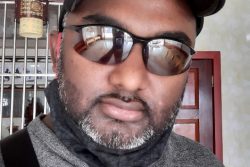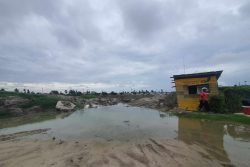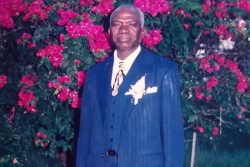The only positive attribute of the thoughtless and irresponsible call of the PNCR Chair, Volda Lawrence for the governing coalition’s supporters to work the ‘night shift’ outside of polling stations is that it has now crystallised great interest in security arrangements for March 2nd.
Given past experience at general elections where some polling stations were overrun by persons who were stirred up unnecessarily or had nefarious intentions it is now time for GECOM and the Guyana Police Force (GPF) to state explicitly what steps will be taken to ensure security of polling stations on the day of the elections and particularly after the close of polling.
The same manner in which the GPF produces a Christmas security plan, the public expects that given the high stakes at this election, that Police Commissioner Leslie James will begin orchestrating arrangements for quietude on March 2nd and that these will be communicated to the public.
There will be as many as 2500 polling stations based on the latest information from Chief Election Officer Keith Lowenfield. It is now Mr James’ task to determine likely hotspots and flashpoints in the various electoral districts. Given the number of polling stations it will be a challenge for full coverage of each and every one. There is usually at least one member of the police force present during the day. At the close of poll, the responsibility of that policeman or woman becomes exceedingly important. Unless specifically ordered by GECOM or there is a line outside of the polling station at 6 pm, polling comes to an end and the counting process begins.
Counting of just hundreds of ballots – both for general and regional elections – has typically taken far longer than it should and the key moment arrives when the statement of poll is posted outside of the polling station as the official count.
While the majority of polling stations will conduct their operations without any hassle and complete all statutory procedures there is a possibility particularly in light of the high stakes at this elections and the various irresponsible statements such as that by Ms Lawrence that there can be trouble spots which require immediate police intervention.
Mr James will undoubtedly have access to police intelligence reports on previous general elections and those of the media and local and international observer groups. He would be able to piece together where there is likely to be trouble and he then has to prepare for it. Wherever trouble erupts Mr James would be expected to deploy resources to quell any disturbances. He would naturally have to have access to a rapid response contingent in key electoral districts such as three, four and six.
So it now Mr James’ task to map out his requirements for the polling day period and to determine where the gaps exist. Presumably in the regions, the Police Commissioner will also have access to assistance from community police and neighbourhood policing groups. Wherever the gaps exist in terms of manpower, transport and communications, Mr James should ensure that the Minister of Public Security Khemraj Ramjattan is aware and the requisite arrangements are made long before polling day.
The Granger administration has access to a former police commissioner in Mr Winston Felix and several former chiefs of staff of the GDF who would undoubtedly be able to understand security needs of polling day and how to assign resources to limit tensions from spiralling out of control and this is the expertise that Mr James could also benefit from.
Polling day and the crucial hours at the close of voting should not find the police force oblivious to unrest and unable to respond.
In the meanwhile, all contenders at the elections must ensure that on the hustings their speakers eschew incendiary and dangerous appeals to supporters. APNU+AFC must now confirm that it is not advising its supporters to congregate outside of polling stations as this is patently unlawful and dangerous.






